#don't get me wrong I love all the yu-boys but I love these two specifically
Text
Yugo + Yuya Duel Links interaction! From the new Yugo event

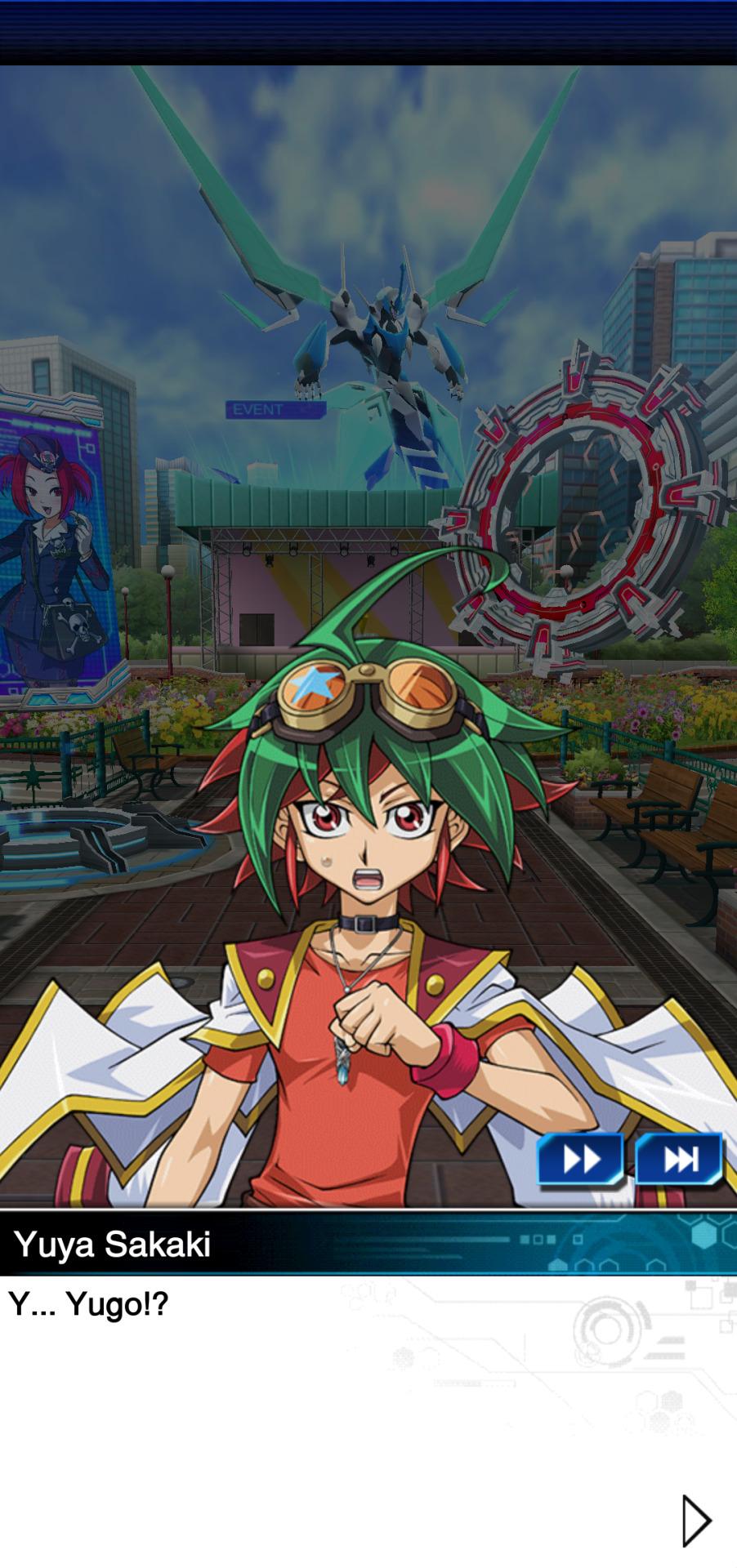
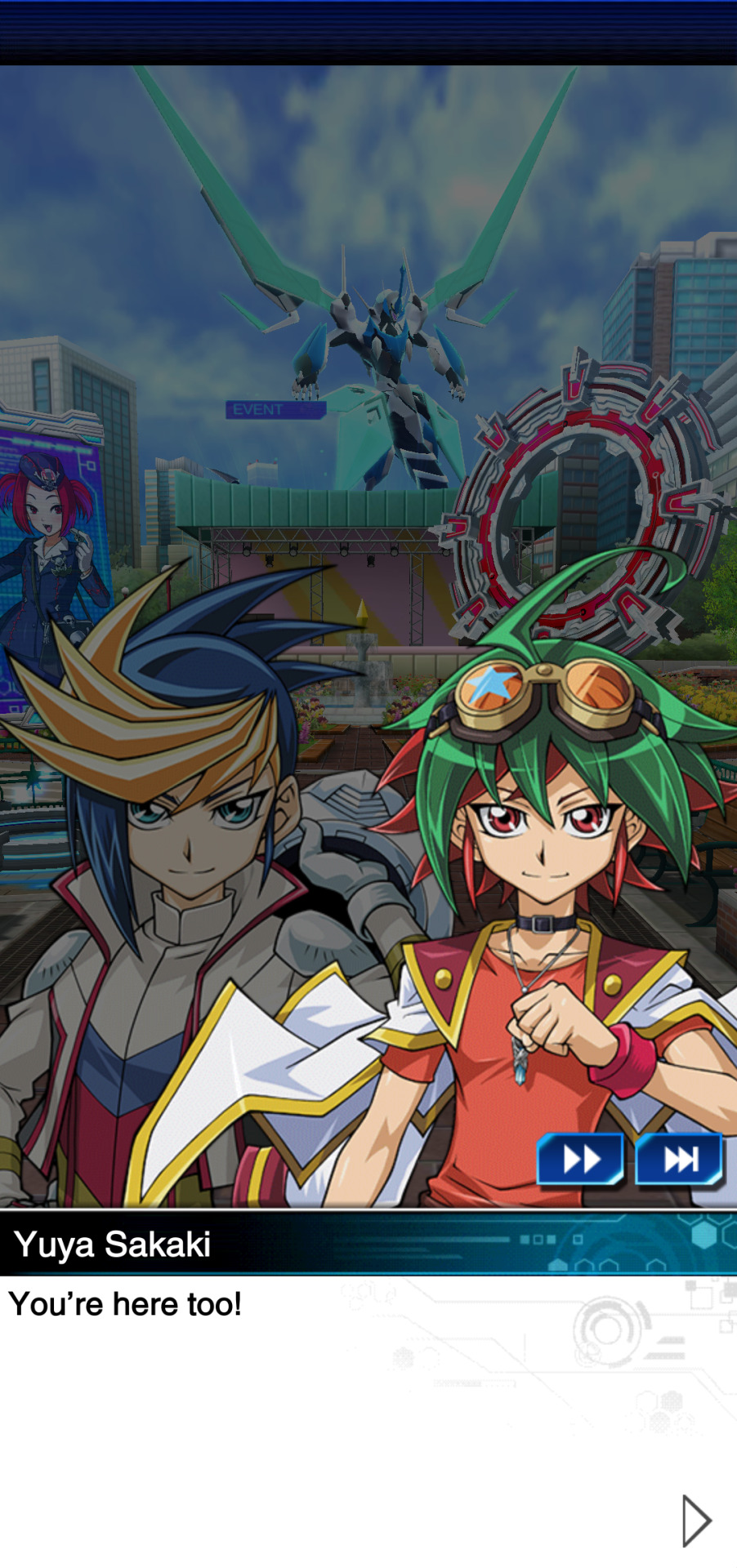
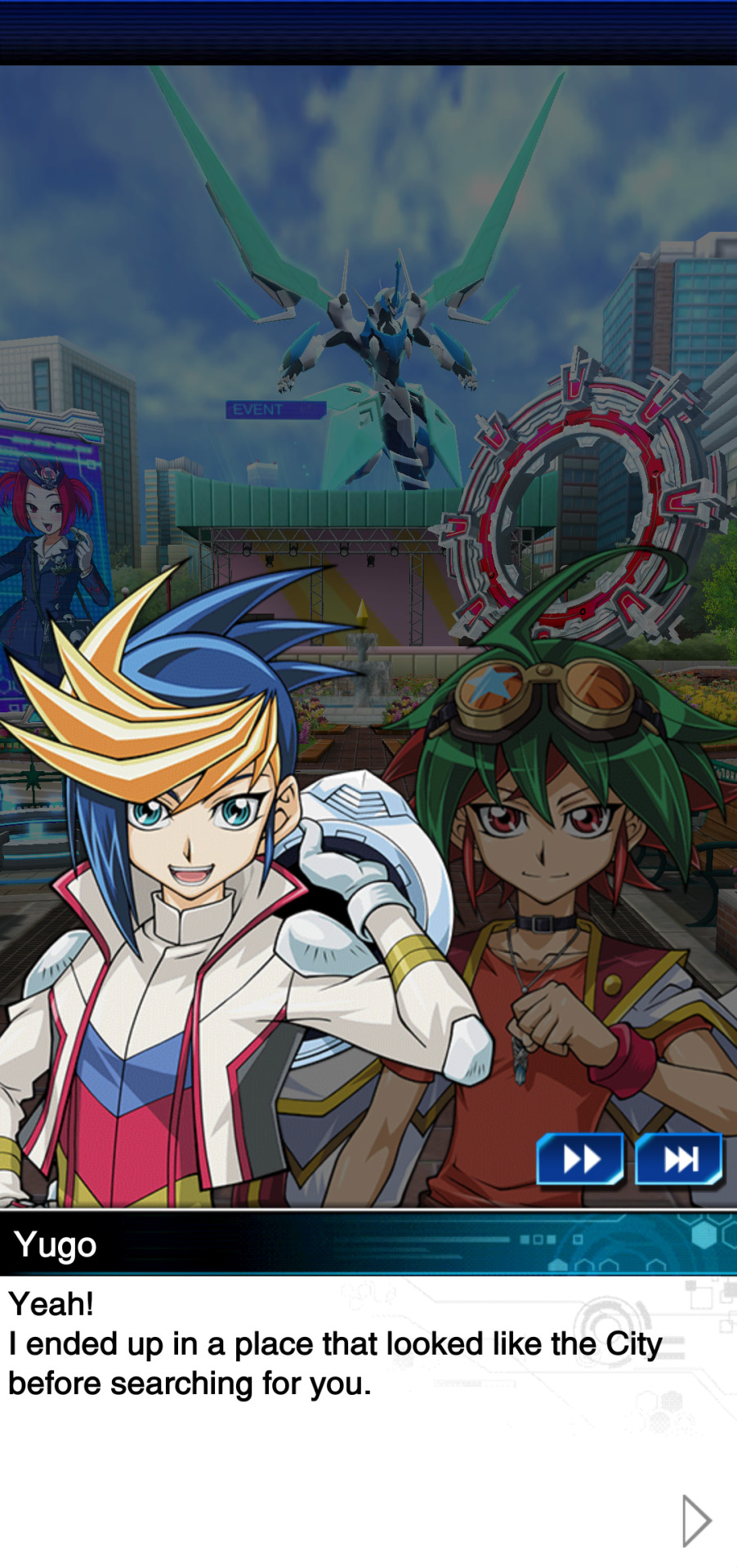


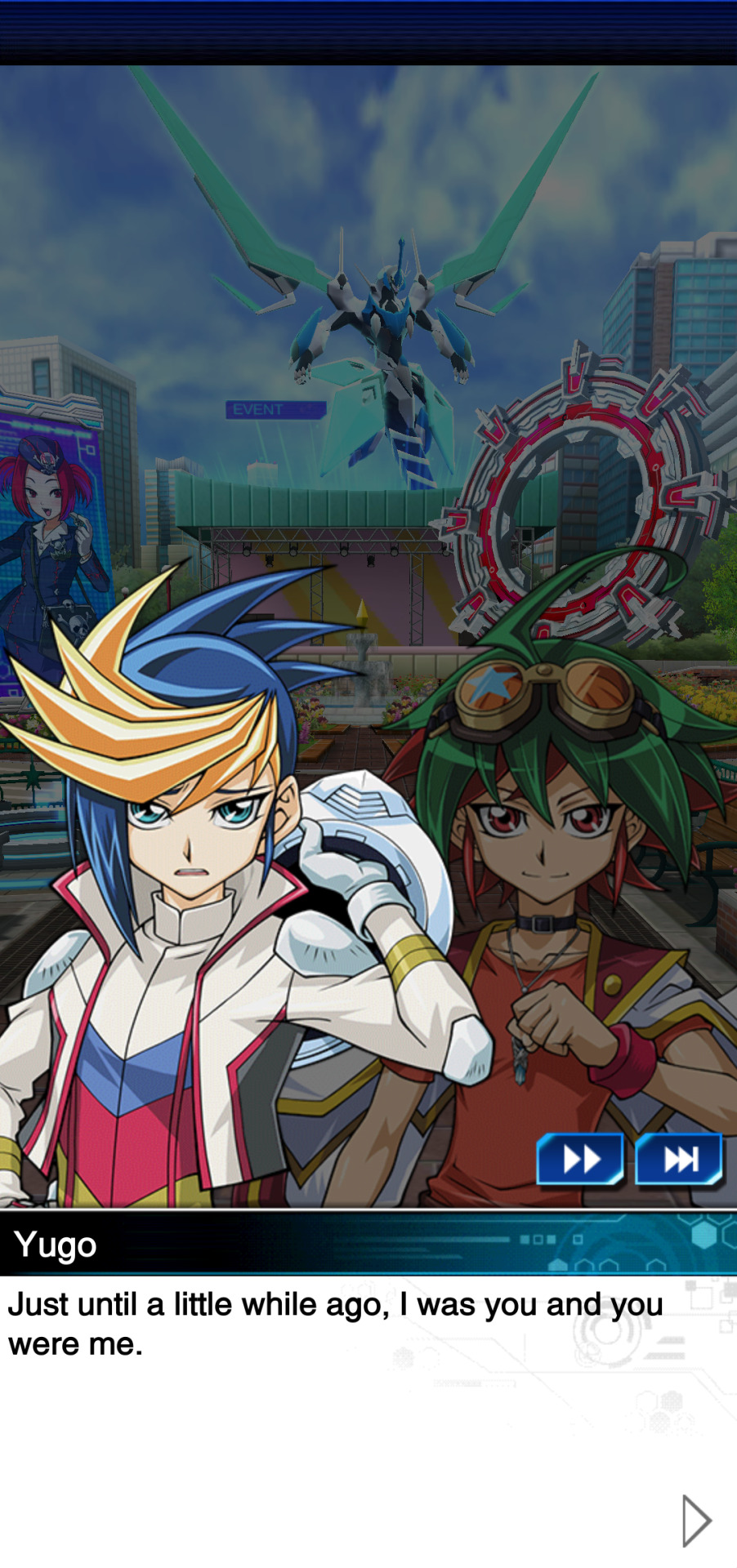


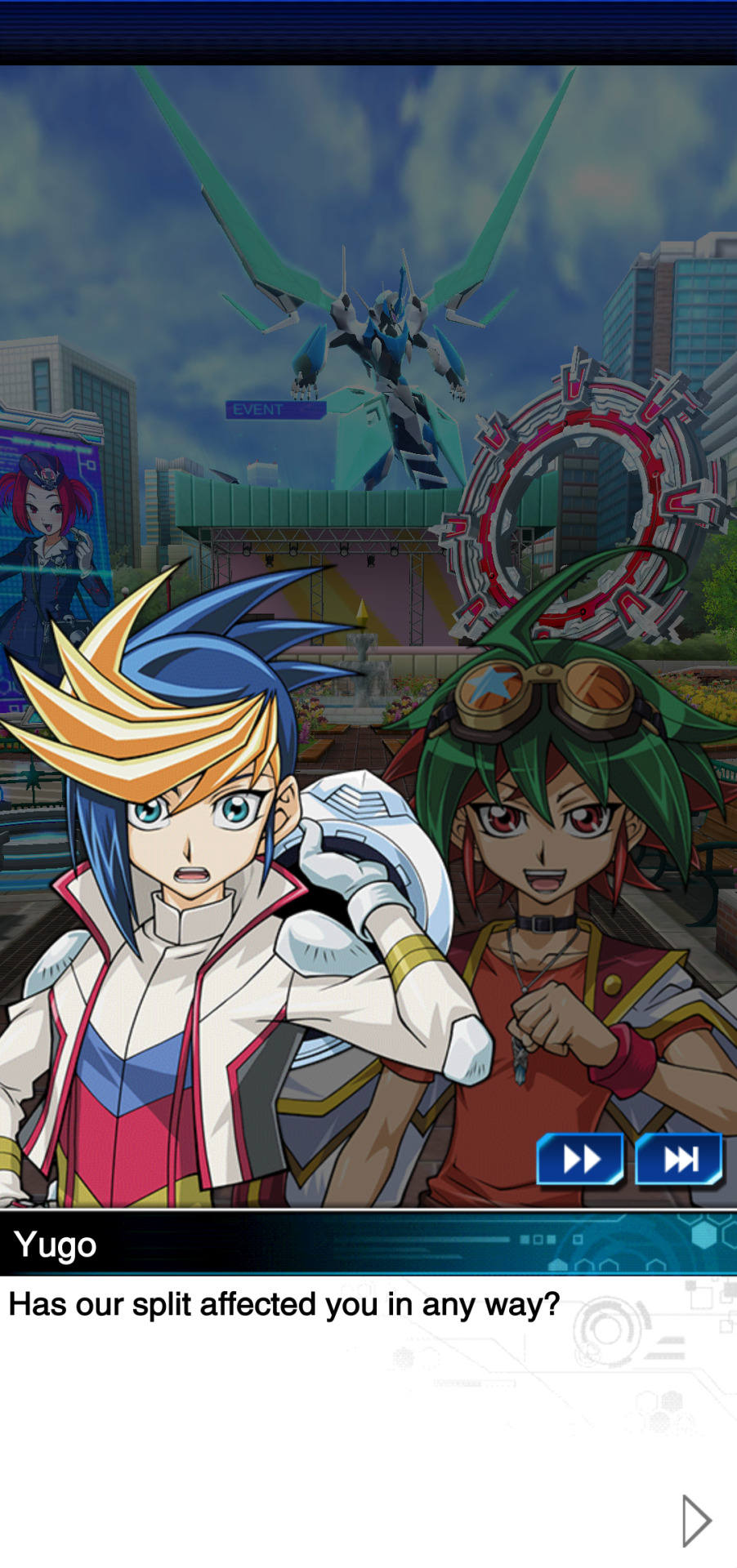
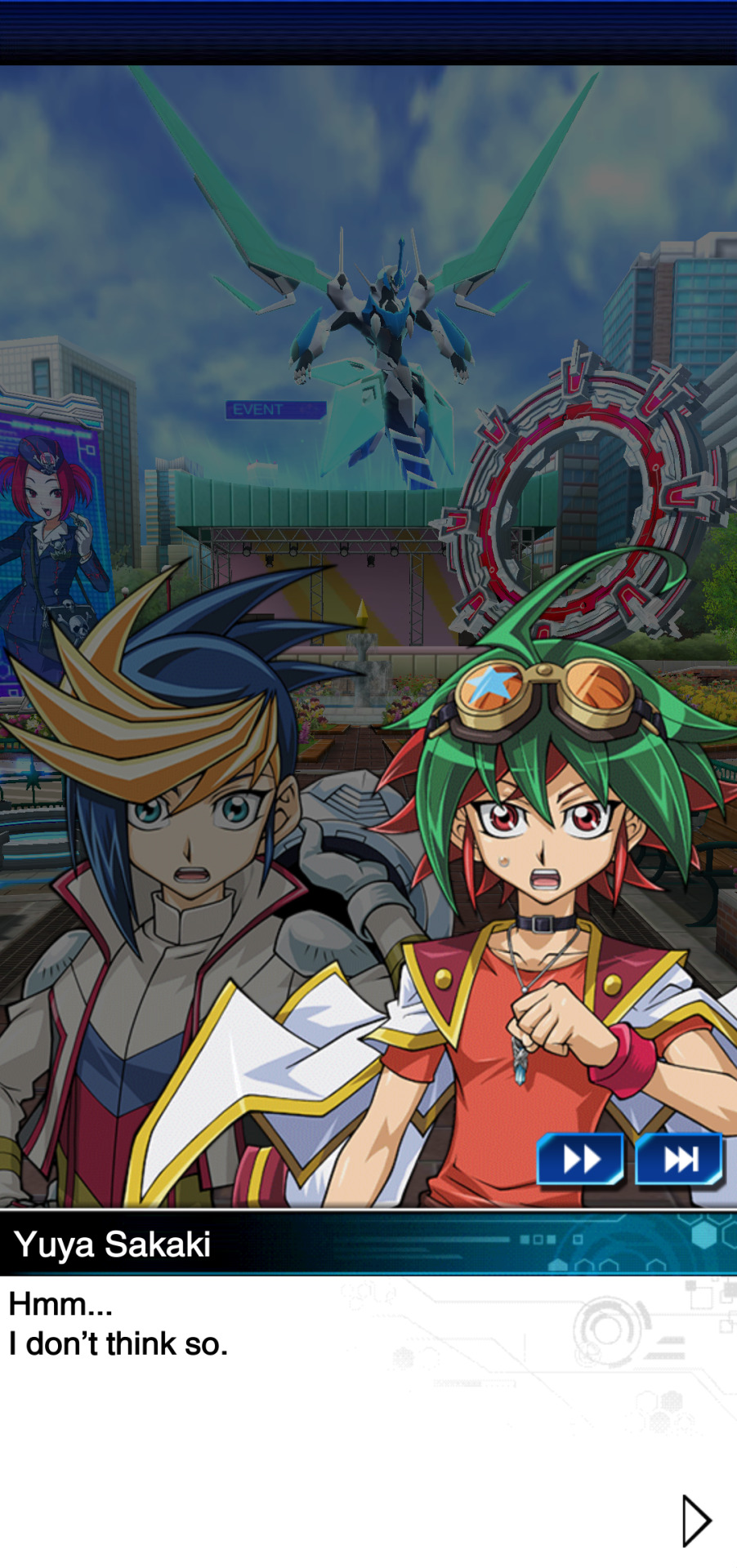


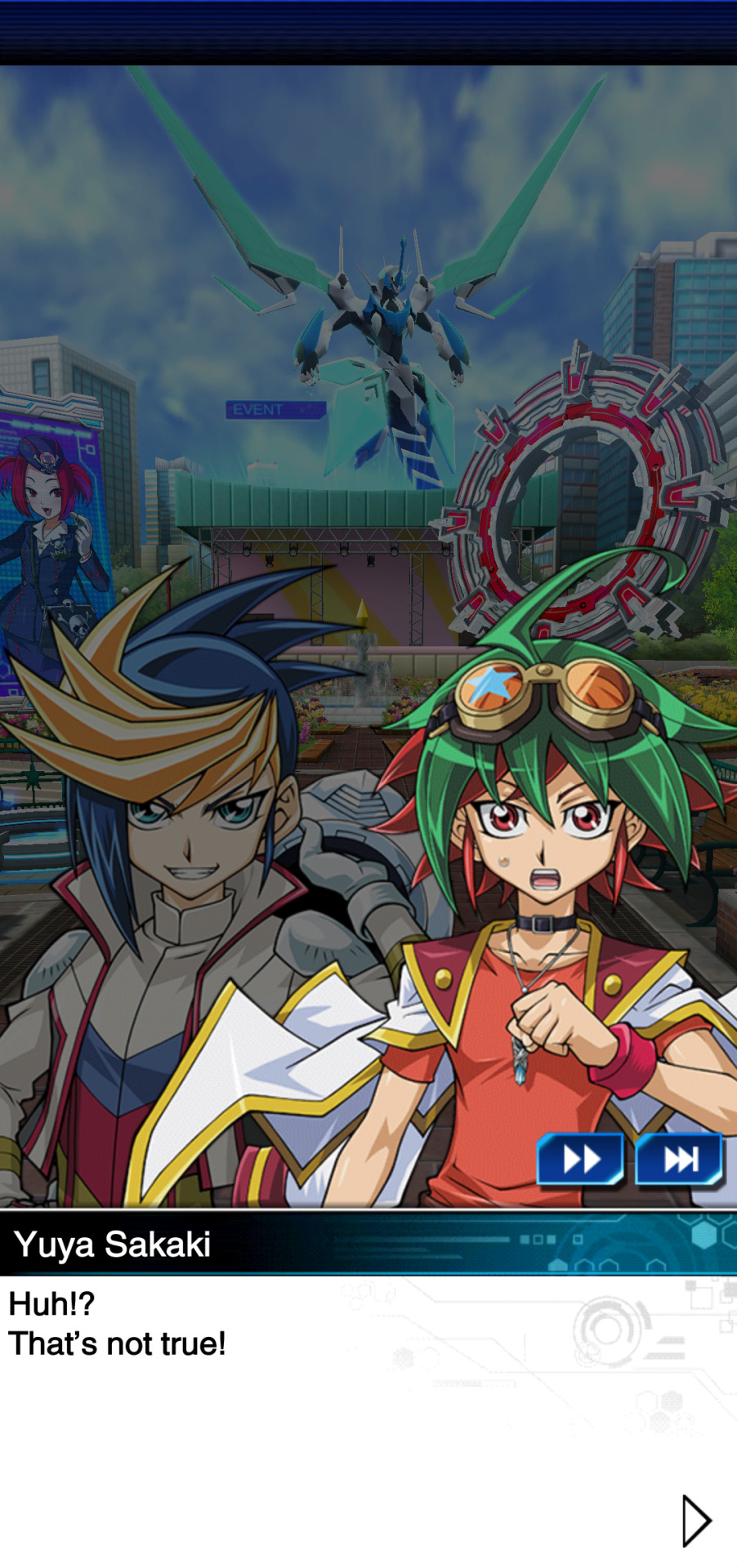

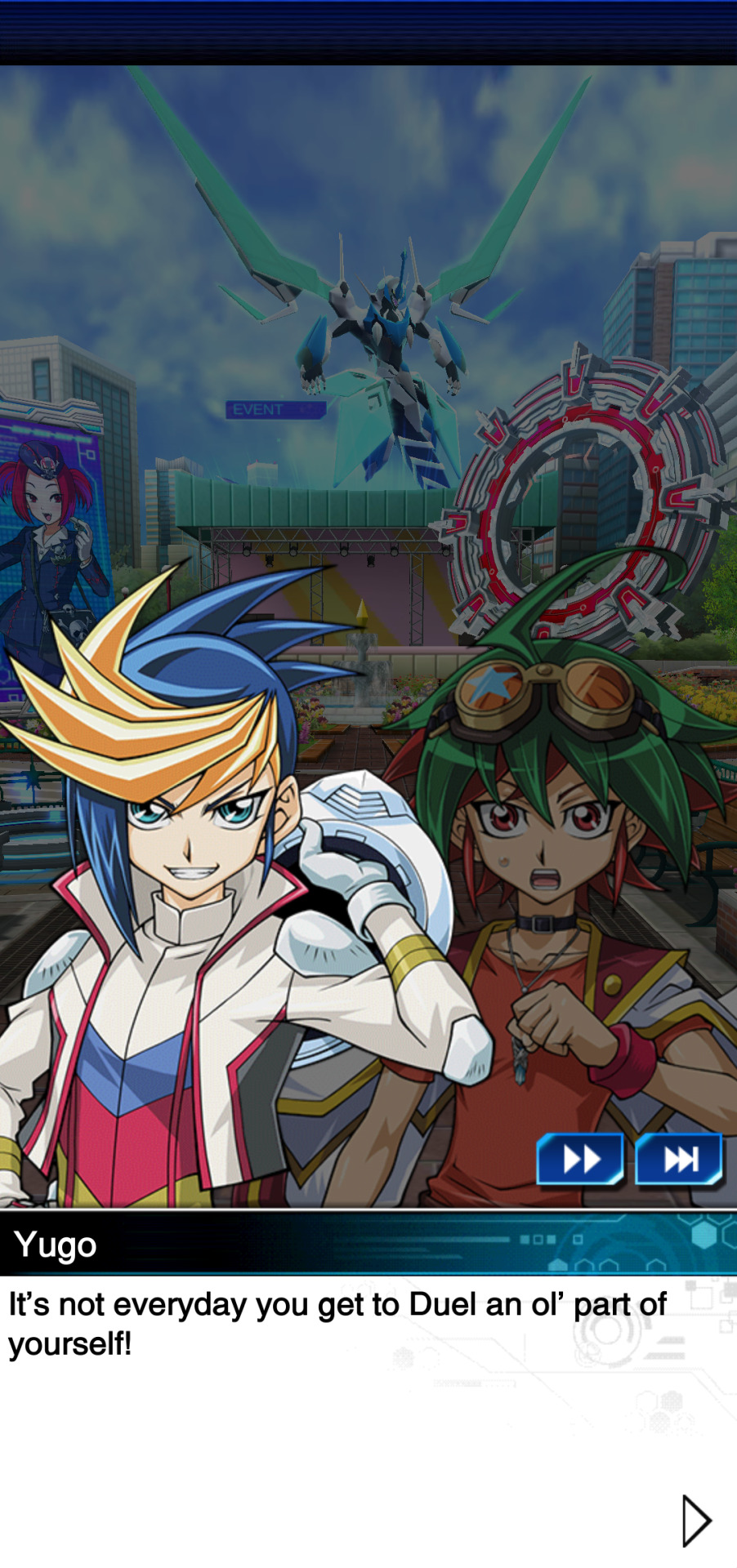
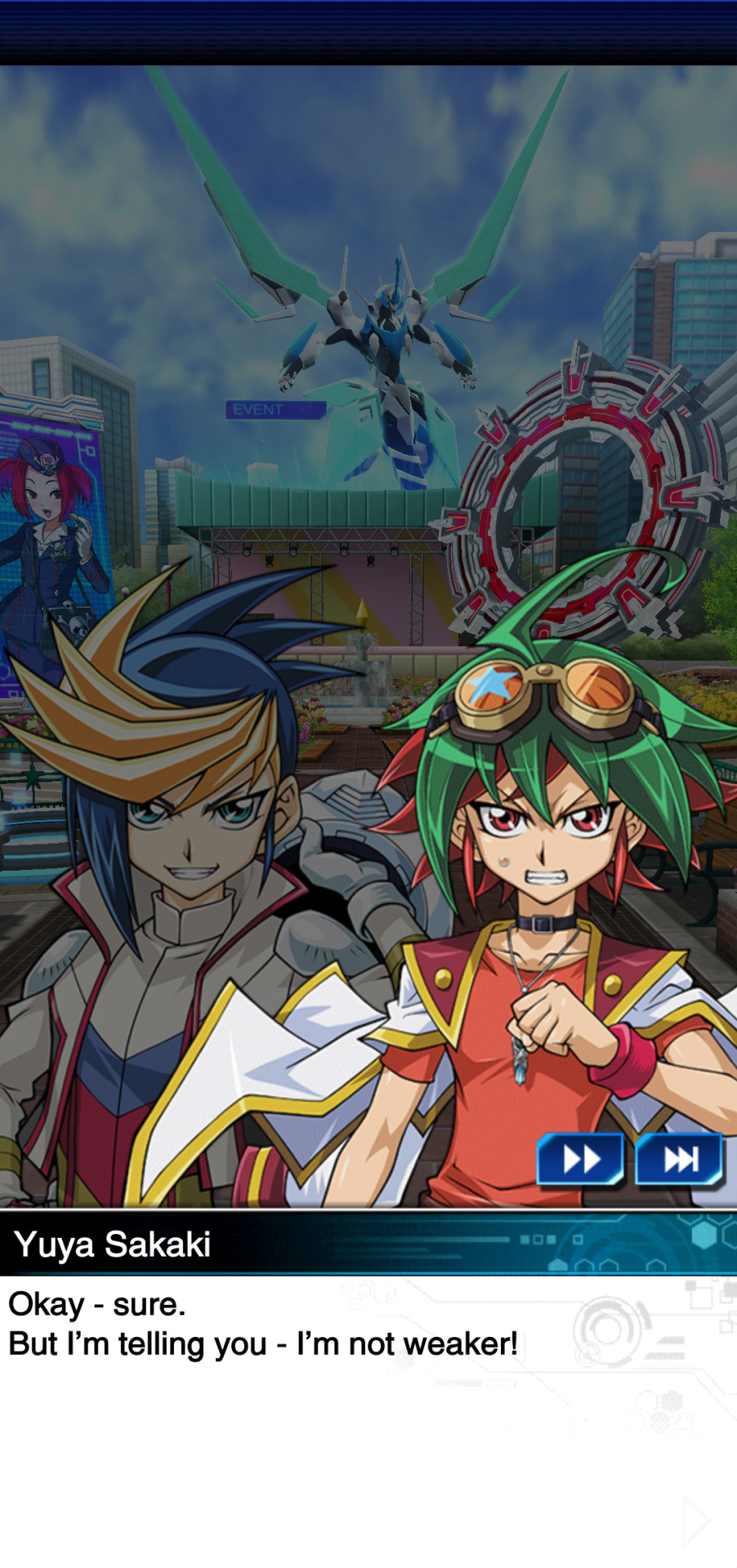
#(yes I'm aware the formatting is kinda sucky but gimme a break it's the least sucky option I have available)#yuya sakaki#yugo arc v#jaiden's duel links misadventures#jaiden caws#duel links#Anyways the strawberry + banana Yu-boys everyone <3#i'm sorry I love them both sm#don't get me wrong I love all the yu-boys but I love these two specifically#Edit: okay NOW it should be fixed#Sorry y'all technical difficulties there but WE'RE BACK
2 notes
·
View notes
Note
Hi, can you do a pov of the yu-gi-oh boys finding out you’re pregnant
(I AM SO SORRY THIS TOOK SO LONG TO GET TO! I love this idea, Anon! {as if I didn't have a good enough excuse to have baby fever XD})
Finding Out You're Pregnant (Yu-Gi-Oh Boys x Female reader)

Yugi Moto
If Yugi's being honest with himself, he's always dreamed of having a family with you since the two of you started dating five years prior
But, since you wanted to wait until the two of you were married, he respected that wish, showing his affection in any way he could think of (flowers just because, kisses and hugs and gentle touches that he knew made you melt)
Once the two of you were married, though...
Let's just say that night was pretty damn spicy
Fast forward about 2 months
You'd been feeling extremely nauseous lately, most days beginning either with that feeling or by throwing up.
When talking to Téa about your symptoms, she suggested taking a pregnancy test
Yugi, like the sweetheart he is, waited outside your shared bathroom, pacing a little bit
He couldn't help it, he was nervous!
But, when you came out of the bathroom a few minutes later and showed him the test result, he went from nervous to elated.
"We're gonna have a baby... We're gonna be parents!"
Does one of those moves where he picks you up and spins you before kissing you and your stomach
Good luck convincing Yugi to get you to do anything for the next 6 months or so lol, he can and will pamper you during your pregnancy
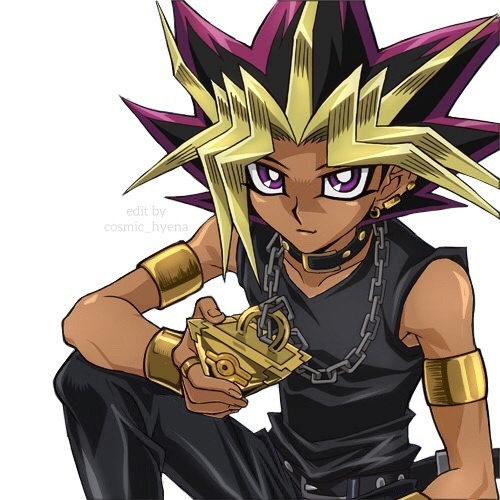
Yami Yugi/ Pharaoh Atem
Unlike Yugi, he hadn't really given kids much thought
But, he noticed the way your eyes lingered on children running past while the two of you were dating
After about two years, the question came up in a conversation the two of you had about the future
He admitted that he hadn't thought about it, but that he loved you and if he were to have children, he wanted them to be with you
About 2 years later, the two of you were married, and anxiously waiting for the results of a pregnancy test
Atem held you close, in that moment, he felt nervous
Even if that result did pop up with a positive, that wouldn't mean that he would be a good father...
When you saw the results, you were thrilled, but you saw the doubt in his eyes
You snapped him out of his thoughts with a touch, reminding him of the feats he's accomplished, and that any child would be lucky to have him as a father
It didn't really hit for him until he got to hold the baby in his arms 9 months later
The nurse had showed him how to hold a baby before placing the little one in his arms
It was pretty hilarious seeing him tense up with a look like a deer in headlights
But... The more he held the baby in his arms, the softer that look became and the more relaxed he was
"I promise my son/daughter... I'll do everything I can to protect you" He promised before gently kissing the baby's forehead
Overall, just a big softie for his little prince/princess
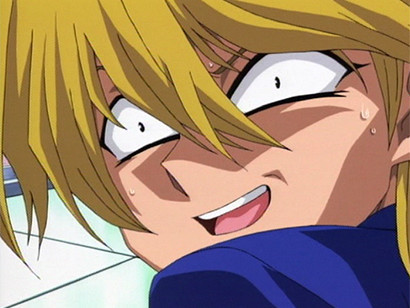
Joey Wheeler
Believe me, with all my heart, I wanna say that Joey was calm and collected when he found out, but... He wasn't (the picture is pretty close to his reaction, honestly)
Joey has always wanted kids, don't get me wrong
Buuuut, he wasn't expecting to have kids this early
For context, you guys were two years into the relationship, but you'd used protection
The only problem is that the one specific time in question fell into the 3 percentile that condoms aren't effective....
He was in a panic when he found out
"Huh?! But, we used protection an' all dat... Didn't we?"
When he looked at you, you were crying, which only made him panic more
"No, no, no, baby, don't cry. It's gonna be all right. We'll figure this out togetha, I promise."
True to his word, he was at every Dr's appointment, every checkup, and at your side every moment of the delivery
All the while during the pregnancy, much like Atem, he was extremely nervous about being a father
He didn't exactly have the best father to compare to....
But, all those doubts faded away when that baby was placed in his arms for the first time
He smiled softly, a smile that told you he was gonna be a sucker for his kid
Good luck getting the baby away from him, because he wants to be there all the time

Seto Kaiba
As for Kaiba....
He's a CEO and a Duel Monsters Champion, he doesn't have time for kids
Except for Mokuba, but that's his brother...
So, when you found out you were pregnant, you were understandably nervous and afraid
Afraid that the worst would happen, that Seto would leave you and want nothing to do with his child
While your fears were understandable, you forgot that Seto Kaiba has a soft spot for his loved ones, you especially
You tried to avoid him, but a couple days of that had him pinning you against the wall in his office to get you to talk to him
He was worried about you, and asked you what was going on, telling you to be honest with him
He was more alarmed when you broke down
Through tears, you told him you were pregnant, and he was the father
He held you close to him, his heart breaking when you begged him not to leave you
"I'm not going anywhere." He made you look at him. "I won't lie, the thought of being a father scares me... But, I promise, I'm going to do everything I can to be the best father I can be."
Seto Kaiba is, above all things, a man of his word
When Seto wasn't around, Mokuba helped you out, and you better believe that baby's been spoiled since before their birth...
Once he held the baby for the first time (ngl, the sight of his giraffe self cradling a tiny baby is both endearing and hilarious), it was hook, line and sinker
Safe to say, he ended up being a better father than he gave himself credit for
(Again, I'm SO sorry this took a while! But, hopefully you enjoy it!)
#pharaoh atem x reader#joey wheeler x female reader#seto kaiba x reader#yugi x reader#Yu-Gi-Oh Baby Fever
265 notes
·
View notes
Note
Hi, lise....How are you? If you don't mind me asking, what are your favorite moments from novels tgcf and svsss (top 5 or top 3 from each novel)? And why? Sorry if you've answered this question before.....
Oooh, fun question.
I’m going to cheat here and only answer from TGCF because otherwise it would just be too much work (and also because, since I just reread and have read it more, my memory of that one is better).
okay let’s see here.
introducing Hua Cheng! with a carefully choreographed entrance he’s been planning for centuries. This meaning his entrance before he actually introduces himself as San Lang, of course, because while that is also great it’s not quiteas perfectly dramatique as his Ghost Bridegroom performance. well done, sir, well done
when Xie Lian automatically responds to applause while fighting undead brides by asking for money. like there’s the sad part about it but also...it is funny
the pain that is Xie Lian’s sheer indifference to physical harm to himself once You Know because...yeah! woof! I mean I have a general thing about...characters with weird relationships to pain because trauma and hoo boy does Xie “well if I don’t die it’s fine and I can’t die so it’s always fine!” Lian have that going on.
Hua Cheng with Fu Yao and Nan Feng in Banyue. honestly Hua Cheng with Mu Qing and Feng Xin at any time, but especially during that period of time where no one is admitting who they are even though everybody knows who everybody else is. Hua Cheng just having a grand time fucking with the other two.
the Xianle Trio’s relationships, generally, but honestly especially everything Mu Qing does. Mu Qing, generally, actually. Mu Qing does something and I’m like “yeah, love to see it”
Quan Yizhen frantically stuffing gold bars into Xie Lian’s offering box to thank him for cutting off bad play mocking shixiong because he’s kinda like that
in general just Quan Yizhen’s shixiong brain and his relationship with Yin Yu. side plot that I would read as a main plot? there’s like six of them in here and this is one of them
poor Xie Lian’s panic after his first kiss, ever. he’s just so distressed and overwhelmed and confused about it, it’s adorable.
the Black Water Arc in total, but especially the confrontation with Shi Wudu, Shi Qingxuan, and He Xuan in Nether Water Manor. it’s got everything! impossible choices! betrayal! “you called the wrong name!”, manual beheadings! what more could you want from an arc tbh
Yin Yu’s death scene will always get me, I mean, again, everything about Yin Yu and Quan Yizhen really does it for/to me, and this as a...well, not final conclusion but certainly pretty final-feeling at the time is. very good. and Yin Yu’s last words to Xie Lian...breaking my heart, man.
Xie Lian calling Ling Wen for help dealing with Ling Wen
the fucking...confession in the cave of ten thousand statues. just...Hua Cheng so ready to be rejected! they’re so sweet, they’re so sweet with each other and it just. fuckin’ kills me. I’m not usually a big romance person actually but...that’s romance, baby
but also just...Hua Cheng in the cave of ten thousand statues generally?
like...all of Book 4 honestly but to choose a couple specific moments...
Bai Wuxiang ‘comforting’ Xie Lian. like, everything about Bai Wuxiang’s relationship with Xie Lian in Book 4 is mmmm tasty but especially dear to my heart are the parts where he’s like. I’m your only friend :) :) :) it’s creepy and awful and I’m into it
the fucking...chapter 190 temple scene. fucking. yeah. I got nothing ok
just...I love a good downward spiral, I really do, and Book 4 is basically Book 4: The Downward Spiral so
on from flashback-land! “do it yourself” slkjdslkjdflksdjf YEAH also just thinking about He Xuan just...lurking around in a Hua Cheng costume that whole time. what is going on in his head, what is he thinking, I just want to know these things
Mu Qing’s conversation with Xie Lian on the Heaven-Crossing Bridge! I knew I loved this one but I had forgotten how much until I reread but ohhhh boy there’s a lot there and I love all of it. Mu Qing’s envy, and his belief that others will always believe the worst of him, and in the end just...finally owning up to wanting to be Xie Lian’s friend even though he has to fight to get the words out. Mu Qing I love you and I want only the best for you
the end of Jun Wu. I...kinda want to write more detailed meta about this at some point? but I feel like...god, when I talk about endings that respect their villains this is one of the ones I think of. and it has such a gentleness to it, which fits with Xie Lian perfectly. it is actually very important to me that Jun Wu doesn’t die at the end. it’s even more important to me that Xie Lian gives him the bamboo hat before he walks away.
Jun Wu has been trying to sculpt Xie Lian into his mirror image this whole time (or maybe not! maybe somewhere he wanted to be proven wrong, I think both can be sort of true), but in the end it’s Xie Lian who turns the mirror back on him.
if that phrasing makes any sense at all! but yeah, it’s just...boy, thanks mxtx you did good things for me and I’m very grateful
anyway I love TGCF very much, donghua season 2 when
#thanad zid#conversating#webnovel liveblogging#dysfunctional gods and ghost kinks#i gotta go chop some sweet potatoes#lise reads tgcf
89 notes
·
View notes
Note
A while ago you mentioned really hating the Persona 4 protagonist as Yu Narukami (from the crossover games and possibly the animation) but liking him as Souji Seta (from the manga, I think?), which is also the name you seem to use most regularly. If you don't mind, could you explain the difference and why you prefer one over the other?
FUCK YES I CAN
(there are Persona people on my dash, that’s so fucking exciting, I have many things to say about these video games and the fandom is small)
Okay so I have lots of thoughts and feelings about the protags from Personas 3, 4, and 5 in general, and about the various versions of them that show up in various media. It has to do with names and gender and how the very specific conventions of being the silent protag of a JRPG translate into creating character, and I could ramble about this forever, so it’s going behind a cut.
Step one: all Persona Wild Card protagonists are genderqueer and neurodivergent. Period.
A persona is, theoretically in game lore, a reflection of your soul–specifically, a reflection of the part of you that you choose to show the world, because it’s strong and powerful and keeps all the weak parts of you safe behind it. In early Persona games, every PC had a couple of different masks they could switch between, and that makes sense, but starting in P3 our party members each get one mask that eventually evolves into another one, and we-the-protag get more than a hundred.
We switch between masks constantly, at the drop of a hat. We learn to level these personas up, we figure out how to be these other people, by watching and learning to understand our friends. And there is something intensely queer about the fact that the masks we put on, with no pause or hesitation, can be male, can be female, can be both, can be neither. Sure, it’s possible to argue that the protag has any certain specific gender identity underneath/behind those masks, but then we’re heading straight towards a complicated discussion about what it means to pass as one gender, vs what it means to model yourself after individuals of one gender while passing or identifying s another, vs what it means to model your actions after a theoretical version of yourself that has a different gender than your own, and like, let us be honest, just having to get that deep into the weeds on that discussion is pretty inherently queer to begin with.
Add to that the essential nature of who Persona protags are as people, based on their reality as video game characters, and we get someone who really does not fit a ‘straight cis neurotypical’ frame. The entire scheduling system in Persona just speaks to every single part of my brain that understands executive dysfunction. You do exactly one thing per unit time. You can wander around town forever, but as soon as you stop to talk to another person, that’s it, that is your One Thing, that is all of the spoons you have for this time period, you can maybe do another thing later. This really hit home in Persona 5, where your protagonist has a goddamn talking service cat without whom he can’t remember how to start any task up to and including going to bed (and people bitched about Morgana so hard, but also #RELATABLE oh my god), but it’s there in 3 and 4 as well if you look. The P4 protag does favors for every single person in town. The P4 protag stands out in the rain fishing for hours. The P4 protag can accidentally spend an entire afternoon petting cats. The P4 protag tries to make tomorrow’s lunch and has to think for a while over whether to add soy sauce or sugar.
So: the video games give us these characters who are intended to be hollow so that we can fill them with our own self-projections (and maybe I am self-projecting here, why not, everybody else gets to do it), but that very hollowness is also a shape, do you see what I mean? You can extrapolate a person based on assuming the dialogue options the protagonists get are actual things that run through their minds, based on what choices are even available for them to make. You can ask questions about what it means to be so hollow in the first place, what it takes to be the sort of person who can switch masks in the blink of an eye when everybody else around you makes do with all of one. It’s really interesting to ask those questions.
Step two: the naming of Persona protags is complicated, and is as much a fandom question as it is a canon question.
In general, persona protags starting with P3 have gotten two names: one in the official manga that starts coming out right around the same time as the video game, and one in later animes and tie-in games. What this means, at least in Western fandom (I don’t know a ton about Japan-only fandom!) is that for the first year or more of having a protag, the only name we have for them is the manga name, and so that’s the name 99% of fandom jumps on in those first several months.
When we explore and extrapolate and do all of that extremely transformative fandom work, looking at the empty spaces around a protag and figuring out who he has to be to fill them (or she, the P3 FEMC is all of this dialed up to a hundred), we at least start doing that work under the manga name. To me–and, in my experience, to most of fandom, whether they think about it or not–the name has relatively little to do with the manga itself. It’s the name fandom had to hand when they first played the game and began to figure this person out. It’s the name for thousands of different interpretations that can fit inside the shell of a person the video game gives us.
I find that transformative labor, and those thousand different interpretations, wildly fascinating. I enjoy doing it myself. I like seeing what other people come up with. Figuring out how to fill the outline of a person who can be anyone (figuring out the difference between Minato Arisato, and Souji Seta, and Akira Kurusu, and learning who they are as individuals by picking out their contrasting spaces) is one of my favorite things about Persona.
The characters from the tie-in animes, then–and from P4 games like Arena and Dancing All Night, which are as much visual novel as video game, where the MC has an extremely distinct personal voice–each present one version of that infinitely-variable character. They’re a single interpretation. They’re a specific interpretation, separate from the many open options of the game itself, they just happen to come with a specific name.
Makoto Yuki, from the P3 anime, is a very different person than the character I played when I played P3, and they’re both very different than the person I write when I write Minato Arisato, the human I extrapolate when I look at all of canon and put my analysis goggles on. Now, I happen to love the P3 movies, and their interpretation of Makoto Yuki, who is a giant ball of severe depression and whom I consider an excellent exploration of the game’s themes of despair and mortality, but I love them like a really, really good fanfic. They don’t trump the ‘canon’ of the game for me; they’re an outgrowth of it. Likewise, I don’t know Ren Amamiya particularly well, but he’s a quiet guy with an inner well of sheer rage that really works for me in what I’ve seen of him. Not my Akira, but a cool dude.
In general, when I’m talking about Persona protags, I use the anime or tie-in game name to refer to the specific version of that character written in that game or anime, and the manga name to refer to that earlier, slightly hollow character of infinite possibilities and fandom interpretations. Which leads us to Souji and Yu.
Step 3: Yu Narukami is a fucking jackass
I think the big thing for me about Yu Narukami, the specific interpretation of P4 Protagonist as seen in the anime and tie-in games, is that he isn’t genderqueer or neurodivergent. Yu Narukami is perhaps the straightest character in all of Persona with the possible exception of Junpei Iori.
I don’t actually hate him in the anime all that much, but thinking about Arena-Yu…he’s a dude. He’s a fucking bro. He screws around with Yosuke over the suggestion of dirty magazines and he’s vaguely uncomfortable about Kanji. It’s been a while since I went through any game LP’s, but I remember the attitude Yu took towards his friends and Labrys, and it was authoritative. Certain. Of course Labrys can overcome her past, now that she has us here to be friends. Yukiko isn’t talking like I expect Yukiko to talk, so of course something is wrong with her.
Yu Narukami, as presented in the Arena games (and I’m pretty sure P4DAN, though it’s been even longer since I’ve seen that) is an In Charge kind of guy who Knows What’s Best for people, and doesn’t particularly need to listen to what they have to say to do it. He shows no sign of ever having molded himself around someone else; he does not present himself as a man (as a boy) who would or even could switch up who he is at a moment’s notice, because he doesn’t seem to be somebody who ever thinks there’s anything wrong with exactly who he is in the first place. Yu Narukami never had a shadow because he just thinks he’s Exactly That Cool all the way down. He pops the collar on his polo shirt not because he doesn’t know any better, but because he is actually that guy and always was.
Needless to say, that is not my Seta Souji, who spends hours petting cats, and rarely speaks up to bring order (let alone authority) to his rambunctious bickering friends in any discussion. It’s an interpretation, sure–and it’s even an interesting one!–but he is not a guy I particularly like.
So how do those two people, Yu and Souji, even fit together at all?
And this is where we go from me having opinions on various actual versions of characters as-written, and start diving into themes, theories, and mythological parallels. There is a way to tell the story where it all makes sense, where Souji (and even the Yu of the anime, who’s got more shades of asshole than my typical headcanon but still sits far closer to my personal version of the protag than any of the douchebro versions of Yu in the sequel games) ties into later-Yu and it’s a graceful, interesting, thematic choice.
I don’t think it was intentional on the part of the writers. But it does work. And here’s how.
Step 4: I go on a digression about persona protags and sacrifice
I have spent way too much time thinking about themes and parallels between Personas 3, 4, and 5 (someday I’ll watch some decent LPs of 1 and 2, but today is not yet that day, so we’ll stick to the Wild Card trilogy for now). One of the things that I love is the way each protag interacts with the big major theme thing of their game, losing it and gaining it and sacrificing it only to gain it yet again, and it happens in all three games.
In P3, the thing at the center of the game is life, in contrast to mortality. You’re in a car crash at age 6, your parents die, you carry Death Himself in the space behind your heart, you spend all game struggling to survive and also trying to figure out why you even care to bother. At the end you die so your friends can live, but also you’re not, quite, entirely dead–you are asleep, and at the end of all the world you’ll wake up and still be there, just you and Aigis and Elizabeth at the end of all things, alive and mortal. In P5 it’s freedom, and you start the game in chains, flash forward and flash back, breaking bonds and forging them right up to the point where you turn yourself into the police, only to eventually be found innocent of even the original crime that bound you to begin with. There are metaphors and angles to the whole thing, the way becoming Satanael is in its own way both a defiance of Yaldabaoth in front of you and a surrender, complying with the will of every furious desperate angry follower-believer-worshipper in the Tokyo streets, but what we care about most right now is how this shows up in Persona 4, where our thing is identity.
The Persona 4 protagonist, whoever he is, shows up in this small town with no identity at all. He had a life where people knew him, but the people in this small town don’t even have rumor and hearsay about dead parents or criminal charges to go on. And sure, every protagonist starts out on a train to a new town, but the P4 protagonist goes even farther than that. You show up in Inaba, and one of the very first things that happens to you, something that doesn’t happen to any Persona protag in any game I’ve ever seen, is that you lose your persona.
The starting persona in P4 is Izanagi. Based on the fact that Adachi’s persona is Izanagi, too, based on the fact that Izanami is the one who granted you access to the TV world and presumably a working persona to begin with, based on every theme and implication in the game–Izanami gives you your starting persona. She chooses who you are. She declares that you’re ‘hope’, and maybe you had some qualities that suited you for that role to begin with, but anyone you’ve ever been is gone now in service to your part in Izanami’s play.
One of the things I really liked in the P4 anime was the protag’s terror of being alone and empty. Now, I enjoy my Souji Seta as someone who’s a little bit hollow and empty–not in a bad way, but like a clear glass that can be filled with anything, and takes on the color and nature of whatever it holds–but right, in a story whose main theme is identity and accepting yourself, being infinitely transformable is both ideal and terrifying. If the P4 protag can be anyone, how can he be someone? In the end, the only identity that’s really his and not copied from one of his social links is the one that Izanami gave him. His final persona, Izanagi-no-Okami, has more to do with her than anything that comes from inside him.
Loss and gain, sacrifice and victory–the P4 protag goes back to his old life, sacrificing the person he’s created for himself here in Inaba to reclaim the person he theoretically used to be. Depending on how you read the ending, he gives up his infinite adaptability in order to fill himself with a final persona that is chosen for him, sacrificing his innate capacity to be anyone (which is in its own right a key characteristic of his self) in exchange for becoming someone, specifically a someone who was chosen for him.
(This is more my interpretation than anything I’d consider strictly canon, but–in my head, the P3 protag achieves that final moment of apotheosis, and the god-binding power that comes with it, from the sacrifice of his own life and also the fact that after Death lived in his heart for ten years straight he’s explicitly no longer entirely human to begin with. The P5 protag achieves it by sacrificing his own individual freedom to the collective belief and prayers of literal hordes of desperate people, which we know is full of power because that’s how cognition works. The P4 protag, I have always suspected just a little, gets it from the actual Izanagi–because if the actual Izanami is the source of all of this trouble, the actual Izanagi must exist too, and to trap a god you must be a god, in some small way. Our protag is given the tools of power to seal Izanami away, and in return he must become a tool of that power.)
There are a lot of ways to interpret the themes and echoes and actual events of P4 vs P4 Golden vs P3 and P5, and this isn’t necessarily Objective Truth, but this is very much where my head goes when I think about Souji Seta and Yu Narukami. Souji is the empty, unflappable chameleon boy who spends his time becoming whoever the people around him need him to be, whether that’s a silent confidant or a valiant hero. Yu is the bold, self-assured young man who has discovered or decided exactly who he is, and knows deep in his heart that he never has to hide or change for anyone, ever again.
Step 5: Yu is a dick because Izanagi is a dick, and okay, fine, I kind of love it that way
All of Persona 4 is about retelling the myth of Izanagi and Izanami, and changing the ending.
This is true for P3 and P5 too, of course. In P3 you walk into Tartarus with everyone you love already at your back, and you set them free to do their own thing (they make their own moves in battle, you don’t turn back to check on them, you trust them to follow or not follow on your own and every member in your team makes their greatest moments of personal growth without you there), but eventually one of you has to stay behind so the other can leave–so you fix Orpheus’s mistake, you stay in the underworld yourself so Eurydice and everyone else you love in the world can go home and live. In P5 you tell Satanael’s story backwards and forwards, the rise and the fall and the rise again; you start at the very bottom of your own pit (you start as the God of Control’s very own chosen one and don’t even know it), and eventually you climb so high that you’re the one who gets to cast God down into perdition instead. Start with one tale, end with another.
The story of Izanagi and Izanami is: once upon a time, through no fault of her own, Izanami was sent to the underworld, and Izanagi loved her so well he ventured down after her. But she was changed down there, her own darkness grown gross and rotten, and though she tried to hide her ugly parts Izanagi did see them. And then he didn’t love her any more; he fled, and trapped her there in darkness forever, to protect the whole world from her flaws, and never ever looked at his own.
You spend all of Persona 4 doing exactly the opposite: venturing down into another world to find people trapped there, and facing their ugliness, and embracing them and drawing them up into the light anyway. Namatame is Izanagi-who-dooms-them, though his intentions are good (Izanami died giving birth to Izanagi’s child in the first place). Adachi is Izanagi-corrupted, claimed and twisted by the darkness of the underworld and his own power, with no mercy in him. But the P4 protag gets to play the Izanagi of compassion, who tried to save his wife in the first place–and we get to fix it. We get to save people. We get to save everyone.
Until we get to Izanami herself, because Izanami can’t be saved. This all gets way more complicated in Golden when we add in Marie, but in the end, we’ve still got our protag standing in front of the goddess Izanami, sealing her away with Izanagi’s power for the sake of everyone else in the world, because she’s too dark and corrupted to bring back out into the light after all.
It’s really interesting coming at all of this from a Western perspective, because I…can’t actually tell if, playing through P4, we’re meant to like Izanagi? Are we meant to be on his side in the end? Are we meant to feel like we’re on this whole quest serving penance for his ancient mythological fuck-up? Are we meant to think that Yu Narukami, who’s embraced Izanagi in all his pride and self-righteousness as his own inner self, is the good guy?
Because yes, Izanami was trying to destroy the world. And yes, we saved it by trapping her, just like Izanagi did in ancient myth. But the Yu Narukami I see in the sequel games is so very much the guy who thinks he gets to decide who’s good enough to get saved and who isn’t. Labrys deserves to be saved, and because he’s decided to be her friend now, she will be, just like that, because of course he has that power.
By the time Arena happens, Yu has embraced and accepted Izanagi as his true self, flaws and all. (Let me not forget to point out the sister-complex kingpin title, for the man whose persona is a god that married his own sister. Let us literally never discuss Nanako as Izanami, because that gets really uncomfortable so fucking quick.)
And Izanagi is a dick. Which means that Yu isn’t, can’t be the quiet, gentle person I see when I try to extrapolate a most-probable Souji out of P4 canon alone. Yu is an asshole because that’s the person he’s chosen to be, the identity he’s claimed to replace the one he sacrificed, and I am on reflection kind of into that.
But also he’s still a dick, and therefore I kind of hate him for it.
#acelania#persona 4#driveby meta attack#yu narukami#souji seta#gosh I should rewatch some of the anime or the later tie-in games#if I can stand to#I do love this series
57 notes
·
View notes